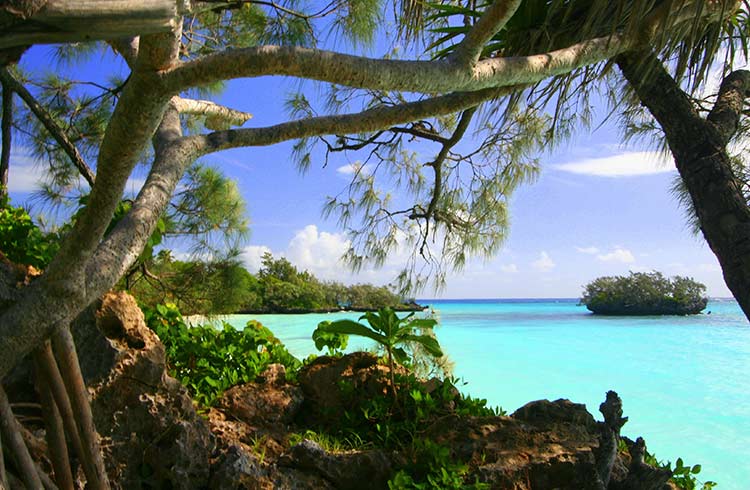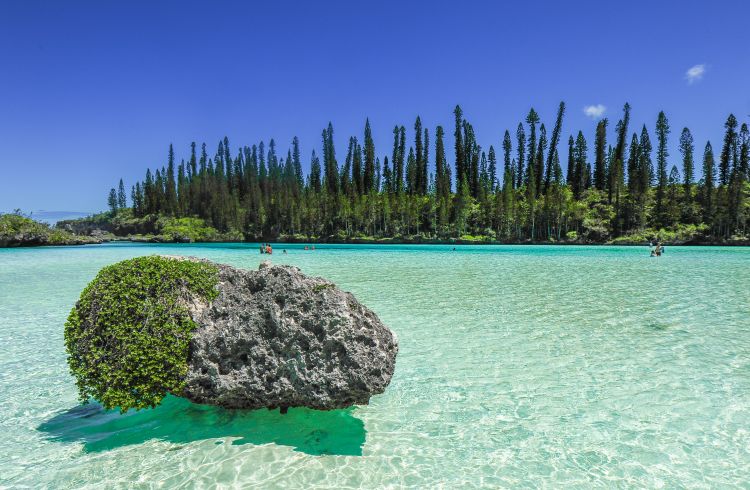Natural Hazards and Health Tips for New Caledonia
New Caledonia is a popular destination in the Pacific Islands, but paradise also comes with a few health and safety challenges for travelers.
 Photo © Getty Images/Mako photo
Photo © Getty Images/Mako photo
- Vaccinations for New Caledonia
- Medical treatment in New Caledonia
- Mosquito-borne diseases
- Food and water borne disease
- Natural hazards
Vaccinations for New Caledonia
The CDC and World Health Organization recommend travelers consider these vaccinations for New Caledonia:
- Influenza
- Measles, mumps and rubella (MMR)
- Hepatitis A and B
- Polio
- Typhoid
- Yellow fever
- Meningitis
- Tdap (tetanus, diphtheria and pertussis)
- Chickenpox
- Shingles
- Pneumonia.
Medical treatment in New Caledonia
If you do get sick or have an accident, the three hospitals on the main island, Grand Terre (the locals call it "Le Caillou" - The Rock), can treat routine ailments and handle most emergencies very well. But if you don't have travel insurance, expect to pay upfront – and it's not cheap.
If you require complex treatment you'll need to be evacuated to Australia.
Scuba diving is a popular activity all over New Caledonia, but there's only one hyperbaric (decompression) chamber in Noumea. If you're on an outer island, it's going to be a while before help arrives or you can be transferred to Grand Terre.
Mosquito-borne diseases
Dengue fever
Dengue fever is common in the warm and wet months of December to February. There's no vaccination available, so it's important to take precautions to avoid mosquito bites. Wear long, light loose-fitting clothing, apply insect repellent at all times of the day and make sure your room is mosquito-proof otherwise sleep under a mosquito net. If your room has a fan, sleep with that on.
Tip out any stagnant water you see sitting around your accommodation.
Chikungunya
This virus is transmitted by a daytime biting female mosquito – which means it's even more important to protect yourself from mosquito bites no matter what time of day it is.
Chikungunya is asymptomatic. If you are infected, you will begin to feel sick 3–12 days after the infected mosquito bite.
Food and water borne disease
Hygiene and sanitation standards are good in the resorts, they may be less so in outer islands. So the vast majority of visitors needn't be concerned about water-borne disease and parasites.
Tap water in Noumea and most resorts is safe to drink, however if you are elsewhere in the country, it's advised to boil or treat your water before consuming.
Food and water borne diseases such as typhoid and Hepatitis A are present in New Caledonia. You can avoid contracting these diseases by observing good personal hygiene practices and taking a few precautions with your food and drinks.
Cigatera seafood poisoning has been reported in the country.
Natural hazards
Tropical storms and cyclones (hurricanes) are common from November to April, but storms can happen at anytime. Because there is limited capacity to leave New Caledonia by commercial flight, you may need to ride it out. Your hotel will advise you on where to take shelter.
Related articles
Simple and flexible travel insurance
You can buy at home or while traveling, and claim online from anywhere in the world. With 150+ adventure activities covered and 24/7 emergency assistance.
Get a quote

No Comments